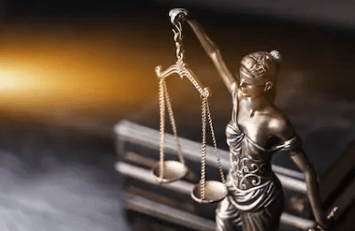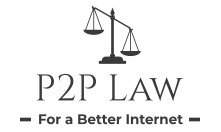 The film industry has to accept a defeat at the German Federal Supreme Court (BGH) in its legal fight against illegal film exchanges in P2P exchanges. The highest German court made it clear that plaintiff rights holders must produce evidence against the alleged perpetrator of a copyright infringement. It is therefore unreasonable to expect connection holders who are supposedly correctly identified to search the computers of family members, for example, or to monitor the use of PCs in the family.
The film industry has to accept a defeat at the German Federal Supreme Court (BGH) in its legal fight against illegal film exchanges in P2P exchanges. The highest German court made it clear that plaintiff rights holders must produce evidence against the alleged perpetrator of a copyright infringement. It is therefore unreasonable to expect connection holders who are supposedly correctly identified to search the computers of family members, for example, or to monitor the use of PCs in the family.
The specific case concerned a lawsuit brought by Constantin Film, represented by the law firm WF, against a truck driver who allegedly illegally offered the film “Resident Evil: Afterlife 3D” for download in 2010 in an exchange market. WF had warned the owner of the connection. He should transfer 1106 Euro (506 Euros reimbursement and 600 Euros compensation). The person who received the warning had then submitted a modified cease-and-desist declaration, but had not paid. WF had sued the Brunswick District Court.
Reason: security gap
The defendant denied the act in court and assured the court that he had not been in the apartment at all at the time of the dispute. However, his wife also made use of the connection. In addition, the Telekom router Speedport W 504V used at the time of the crime showed a serious security gap, which Telekom did not close until 2012. If the WPS function had been activated, unauthorized third parties could have had access – he assumes that WPS had been activated in the preconfiguration that he had not changed. The defendant’s wife testified that she had not used any file sharing software and had not offered the film.
Both the local court and the Brunswick Regional Court (LG) dismissed WF’s complaint. The appeal against the LG judgement was finally dismissed by the BGH on 6 October 2016 (Az. I ZR 154/15 “Afterlife”). Now it published the written reason to its judgement and creates thereby more clarity in things secondary Darlegungslast and proof reversal – in favor of warned connection owners.
Protection of marriage and family
According to the BGH ruling, Constantin Film and the law firm WF went too far in this case. Contrary to their demands, the subscriber could not be expected to log his wife’s Internet use or search her PC for file-sharing software in order to avert his liability as a perpetrator. In the ruling, the BGH focuses on the conflict between the fundamental right to property and the protection of marriage and family against state intervention guaranteed by fundamental rights – with the latter clearly prevailing in the case constellation.
In addition the BGH gave a refusal to the primary assumption of the plaintiffs, a connection owner is to be taken as a culprit in adhesion,: It does not exist a general assumption that the connection owner is culprit of a copyright injury and which he would have to refute or shake, only because he is owner of the connection. This could be considered if there is prima facie evidence to support it. In the case of connections shared by several family members, however, this is not possible.
The BGH continues: “Since the use of the connection is an internal matter of the connection owner, of which the copyright owner is generally unaware, the connection owner has a secondary burden of disclosure in this respect, however. According to the Federal Court of Justice, it is sufficient here to state which persons other than the subscriber had access to the WLAN at the alleged time. Contrary to the plaintiff’s claim, it was “not the defendant’s responsibility to prove that there were circumstances that spoke in favour of liability against the intervention of the actual presumption”. Consequently, he was not obliged to determine the perpetrator himself, to examine computers of family members in the household or to determine attendance and absence times of all co-users.
Victory and milestone
For these reasons, the BGH rejected the appeal and also declared that, as stated by the LG Brunswick, the subscriber could not even be held liable as a perpetrator or a troublemaker. Constantin Film now bears the costs for the warning as well as all proceedings. “This is a further victory and milestone in the fight against the mass warnings in file-sharing proceedings”, explains lawyer Peter Smith, who claims to have brought the proceedings before the Federal Supreme Court. “The person who has been warned must therefore not interrogate his family members like a public prosecutor or search their computers.
